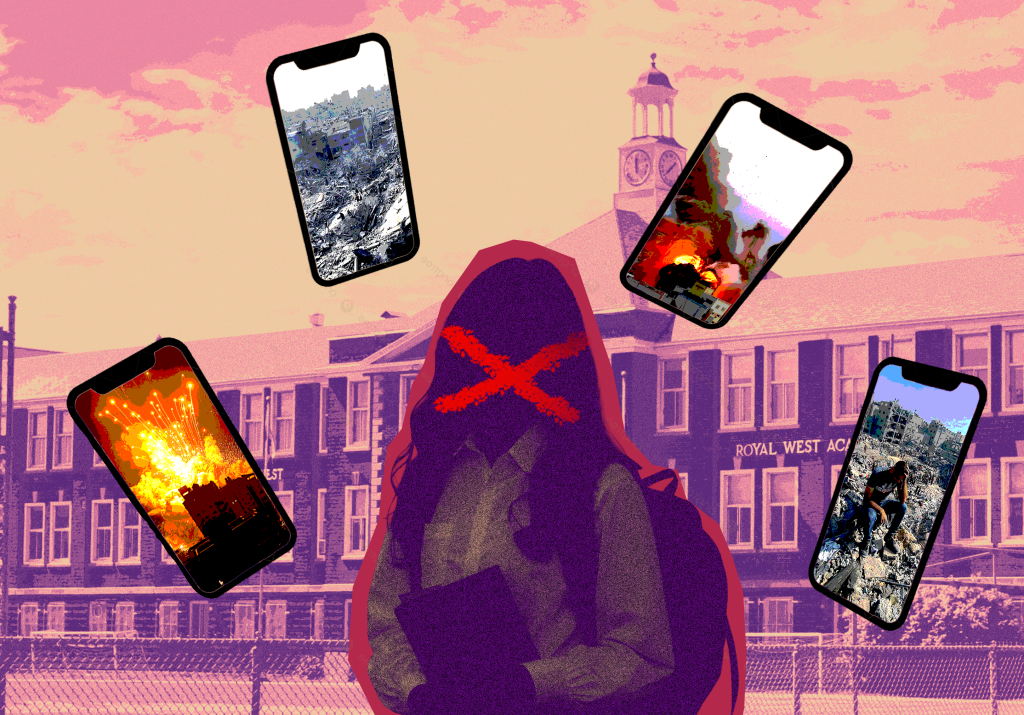In the fishing ports along France’s Brittany coast, the discarded fishing nets pile up along the coastal quaysides.
The lifespan of a deep-sea net is between 12 and 24 months, after which they become worn and beyond repair. Until now, the estimated 800 tonnes of nets scrapped every year have been a problem.
Now, the horsehair netting, once used to trawl monkfish from the sea bed, is being used for another catch: Russian drones.
The Breton charity Kernic Solidarités has sent two consignments of nets measuring a total of 280km to Ukraine to be used to protect soldiers and civilians along the frontline where fighting is fiercest.
Russia employs small cheap drones and fits them with explosives, directing them by remote control for distances of up to 25km. The Ukrainians use the nets to create tunnels in which drone propellers become entangled. It has been compared to spiders catching flies in a web.
“Over the last two years the war has mutated. Before we didn’t even think about drones, but now it’s a drone war,” Christian Abaziou, 70, who is responsible for logistics with Kernic Solidarités, said.
“The Ukrainians have told us they don’t need any old nets. They have been sent quite a few that are of no use. The nets we are sending are made of horse hair and used for deep-sea fishing to catch monkfish which are quite powerful and hit the nets with a strength similar to that of a drone.”
Fishing nets have been sent to Ukraine from France, Sweden and Denmark. Photograph: Sonia Bonet/AlamyHe added: “At first they were used by doctors protecting medical camps near the frontline but now they are being used on roads, bridges, the entrances to hospitals … it’s astonishing that something so simple works so well.”
Gérard Le Duff, the president of Kernic Solidarités and the grandson of a Breton fisher, added: “The Ukrainian ambassador came to Brittany and he thanked us for what we are doing.
“We don’t have a lack of fishing nets in this region. It’s a problem to know what to do with them as a couple of the companies that recycle them have closed. If they need them to create anti-drone walls and save lives in Ukraine, they can have them.”
Kernic Solidarités was set up after Le Duff and Abaziou were approached by local Ukrainians asking for help with clothing, food and medical supplies for communities back home. The charity’s 20 volunteers have driven two lorry consignments of aid 2,300km to Ukraine’s border with Poland.
“When we learned that Ukraine needed nets, the fishing community reacted rapidly,” Le Duff said.
Russia is using first-person view drones, similar to those on the commercial market, that can be piloted by remote radio control that are then packed with explosives. Russian pilots with real-time video feeds direct them to their targets. In some areas, Ukrainian forces say nothing can move without attracting the attention of swarms of “killer” kamikaze drones.
The fishing nets are stretched between poles to create netting tunnels or used to cover trenches and vehicles. Ukrainian drones are also equipped with pieces of netting to drop on enemy drones.
skip past newsletter promotionSign up to This is Europe
The most pressing stories and debates for Europeans – from identity to economics to the environment
Privacy Notice: Newsletters may contain information about charities, online ads, and content funded by outside parties. If you do not have an account, we will create a guest account for you on theguardian.com to send you this newsletter. You can complete full registration at any time. For more information about how we use your data see our Privacy Policy. We use Google reCaptcha to protect our website and the Google Privacy Policy and Terms of Service apply.after newsletter promotion
By July this year Ukraine was dealing with more than 500 drones a day.
Hundreds of tonnes of old nets have also been donated by fishers in Sweden and Denmark.
Jean-Jacques Tanguy, a former president of the Finistère fisheries committee said local fishers are more than happy to help the war effort. “They are proud to know their used material is going to help save lives,” he told AFP.
Abaziou has said the association no longer has the funds to send more supplies this year and discussions were underway for Ukraine to send lorries to pick up the nets.
“We will help get the nets and load them but we don’t have the budget to continue running convoys ourselves,” he said.
Iryna Rybakova, a spokesperson for Ukraine’s 93rd Mechanised Brigade told Radio Free Europe anti-drone net tunnels were being installed across the Donetsk region, about 75% of which is now reported to be occupied and controlled by Russian forces. She added that enemy drone pilots were increasingly finding ways to breach the netting.
“Nets are not a panacea. They are just one element of protection against drones,” she said.
Abaziou, a retired market garden trader, said the Ukrainians he had met were moved by the support of Brittany’s coastal communities: “The fact that those in the fishing industry the other side of Europe are sending nets to help them defend themselves has brought a few tears to their eyes.”
